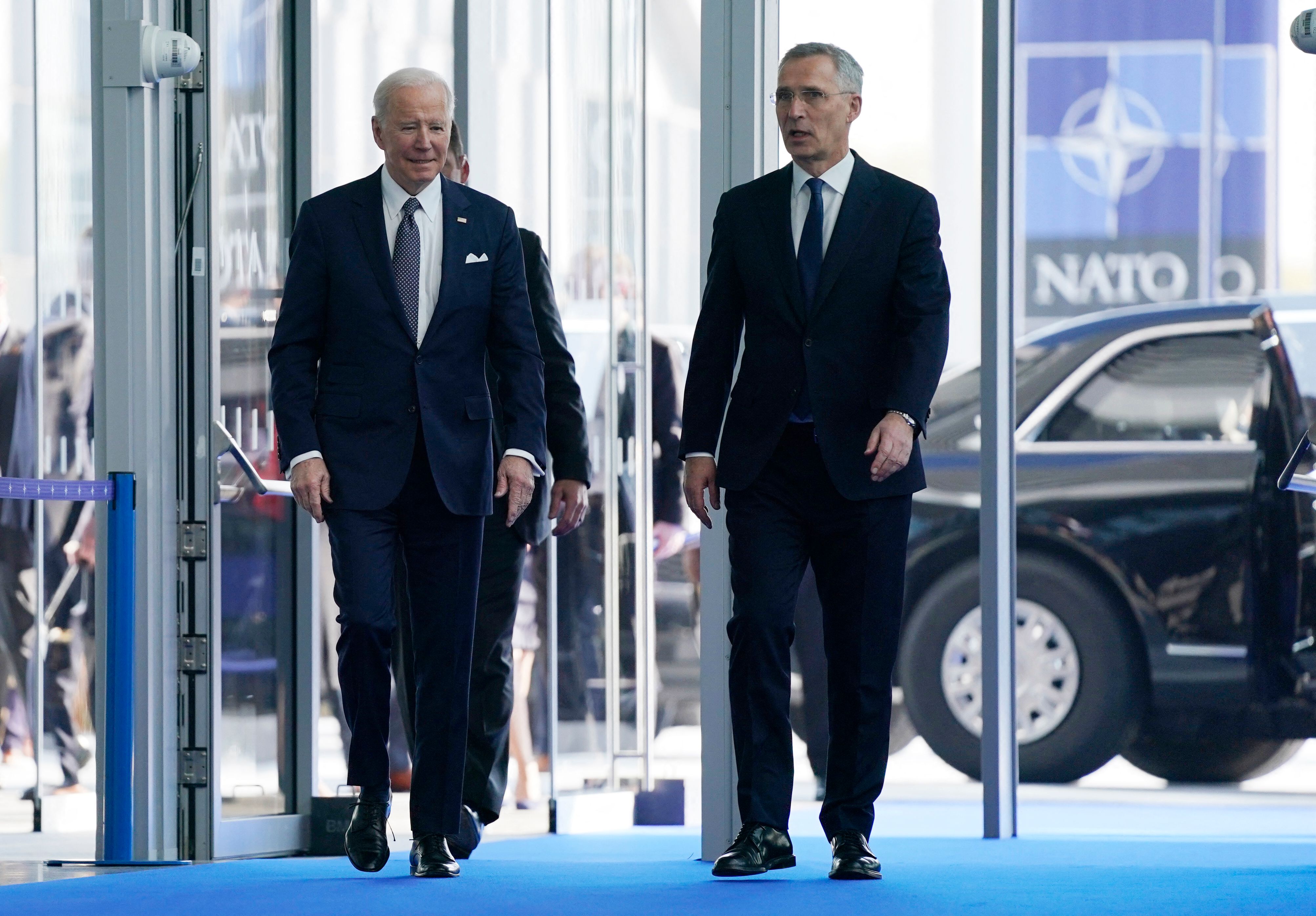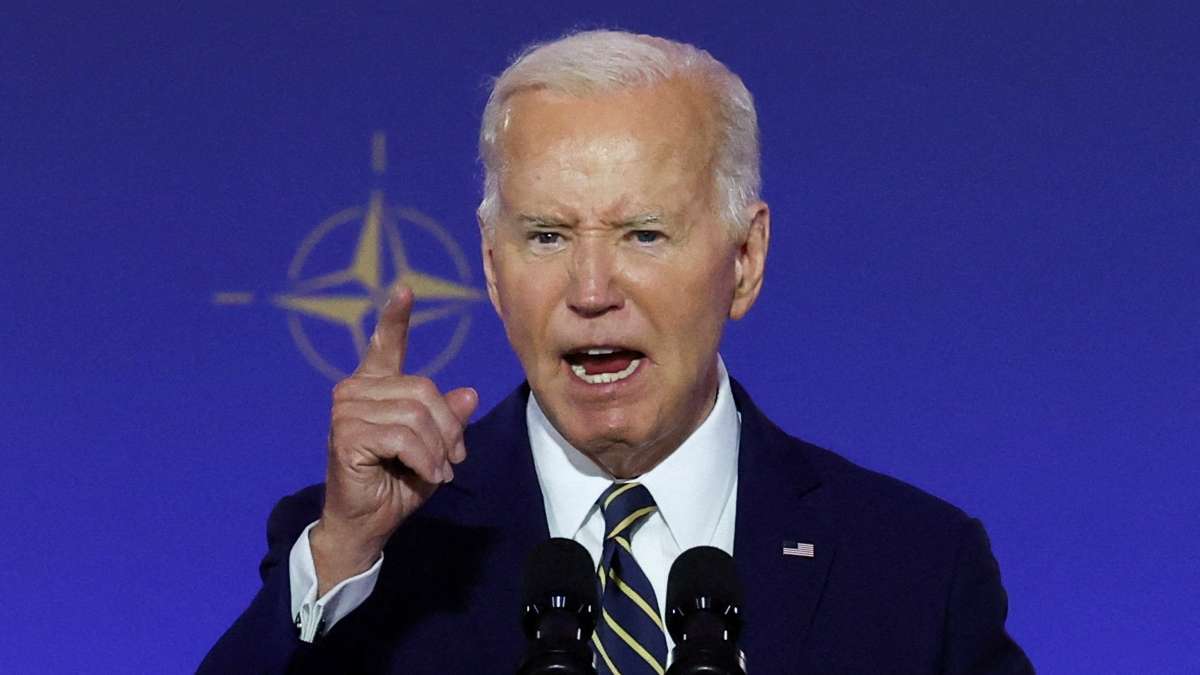Biden’s Role in NATO

Biden nato – President Biden has played a pivotal role in strengthening NATO and coordinating the alliance’s response to the Russian invasion of Ukraine. He has been a vocal advocate for collective defense and has taken concrete steps to enhance NATO’s capabilities.
Biden’s recent meeting with NATO leaders emphasized the importance of collective defense among NATO members. This alliance of nations stands as a testament to the shared values of democracy, freedom, and the rule of law. As Biden reaffirmed the United States’ commitment to NATO, he also underscored the need for continued cooperation and solidarity within the alliance.
Biden’s Initiatives and Contributions
- Biden has increased US military spending on NATO, including providing additional troops and equipment to the alliance’s eastern flank.
- He has also worked to improve NATO’s command and control capabilities, and has established a new NATO cyber defense center.
- Biden has also been a strong supporter of NATO’s open door policy, and has welcomed the accession of new members, such as Montenegro and North Macedonia.
Strengthening Collective Defense
Biden has taken a number of steps to strengthen NATO’s collective defense capabilities. He has increased US military spending on NATO, including providing additional troops and equipment to the alliance’s eastern flank.
- Biden has also worked to improve NATO’s command and control capabilities, and has established a new NATO cyber defense center.
- He has also been a strong supporter of NATO’s open door policy, and has welcomed the accession of new members, such as Montenegro and North Macedonia.
Coordinating NATO’s Response to Ukraine
Biden has played a leading role in coordinating NATO’s response to the Russian invasion of Ukraine. He has worked to ensure that NATO provides military and humanitarian assistance to Ukraine, and has imposed sanctions on Russia.
Biden’s recent speech at the Mellon Auditorium emphasized NATO’s continued importance in maintaining global security. The speech underscored the alliance’s strength and unity in the face of ongoing challenges, highlighting the enduring significance of collective defense and cooperation among member states.
- Biden has also worked to strengthen NATO’s eastern flank, and has deployed additional troops and equipment to the region.
- He has also been a strong advocate for Ukraine’s sovereignty and territorial integrity, and has called on Russia to withdraw its forces from Ukraine.
NATO’s Expansion under Biden: Biden Nato

NATO’s expansion under Biden’s presidency has been a significant development in the security landscape of Europe. Since Biden took office in January 2021, two countries have joined NATO: North Macedonia and Montenegro.
The expansion of NATO is seen as a way to strengthen the alliance and deter potential aggression from Russia. It also sends a message of support to countries in the region that are seeking to align themselves with the West.
Impact of NATO’s Expansion on the Security Landscape in Europe
The expansion of NATO has had a number of impacts on the security landscape in Europe. First, it has strengthened the alliance and made it more difficult for Russia to challenge NATO’s dominance in the region. Second, it has sent a message of support to countries in the region that are seeking to align themselves with the West. Third, it has increased tensions between Russia and the West.
Challenges Facing NATO under Biden
NATO faces several significant challenges under Biden’s leadership, including the ongoing Russian invasion of Ukraine, China’s growing military power, and the evolving nature of warfare in the 21st century.
Impact of the Russian Invasion of Ukraine on NATO’s Unity and Cohesion, Biden nato
The Russian invasion of Ukraine has put NATO’s unity and cohesion to the test. Some members, such as Poland and the Baltic states, have been vocal in their support for Ukraine and have called for a more robust NATO response. Others, such as Germany and France, have been more cautious, emphasizing the need for diplomatic efforts and avoiding escalation.
The invasion has also highlighted the need for NATO to strengthen its eastern flank and to develop a more effective deterrence strategy against Russia. NATO has already taken steps to do this, including by deploying additional troops to the region and conducting military exercises.
Challenges Posed by China’s Growing Military Power to NATO’s Security Interests
China’s growing military power is another major challenge facing NATO. China has been rapidly modernizing its military, and it is now capable of projecting power far beyond its borders. This has raised concerns among NATO members about the security of the Indo-Pacific region and the potential for conflict with China.
NATO has not yet developed a comprehensive strategy for dealing with China. However, it has begun to take steps to address the challenge, including by increasing its presence in the Indo-Pacific region and developing new partnerships with countries in the region.